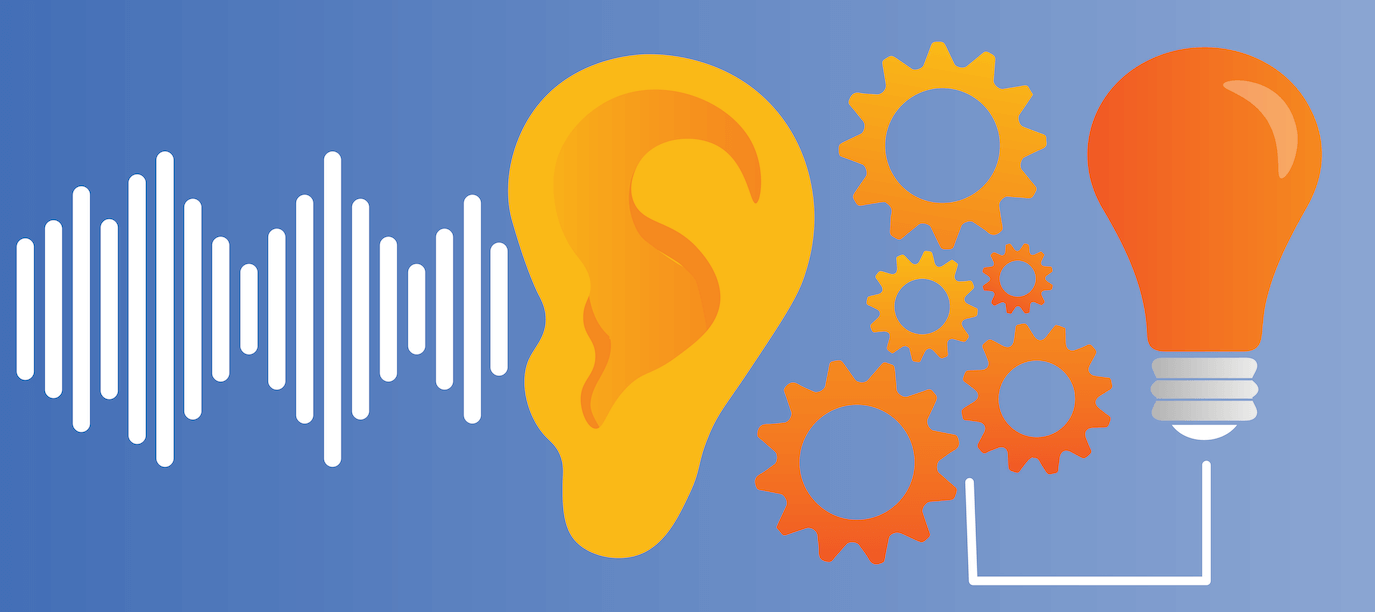
Are We Really Listening to Our Customers?
Whether your company is B2C or B2B, listening to customers’ feedback is critically important – especially if you’re trying to enhance customer experience. Whether it’s praise for a job well done or a critique of user pain points, your customers want to help you – because ultimately, helping you is helping them.
So how does one effectively listen to their customers to create optimal customer experience?
Don’t Be Guilty of Superficial Listening
Let’s start with a personal story about an international organization we’ll call Company X.
Some background: I really like the core concept of Company X, which provides a service rather than a product.
Unfortunately, there’s a growing movement against the realities of Company X’s business model. The objection is simple. Company X relies on local artists, whom they pay poorly while making a large profit off their talent. Patrons and artists have told Company X that this was a problem many, many times.
Yesterday, I received an email with an attached “five-minute” survey to help them “identify the problem”. I found it to be maddening because the problem is so clear. But Company X doesn’t want to hear it.
I’ve decided to stop doing business with this company, as have many others I know. At the root of my decision is one basic principle — Company X is guilty of superficial listening. They hear their customers but are only pretending to listen.
What Makes a Good Listener?
It’s a lesson we all learned back in kindergarten. Yet few have mastered the nuance of being a truly good listener.
A good listener does not simply nod and avoid talking over their conversational partner, but rather actively asks questions that both convey and advance their understanding. They work to have a constructive conversation.
A good listener doesn’t put unnecessary barriers between themselves and their conversational partner. If a customer comes directly to you, you would be better served to hear them out instead of directing them to an online feedback form, for example. This shows you care about their input enough to honor it with your time, and (more importantly) you might learn something valuable.
A good listener is also able to listen. This sounds obvious, but too many people aren’t really listening, but rather drawing up solutions and rebuttals while they should be actively focusing on what the speaker is saying. At best, the speaker will know you only half-way listened, at worst, you’ll miss a crucial point and your counter will be irrelevant by the time it’s your turn to speak.
Technologies for Better (and Worse) Listening
As we so often discuss, there are many instances where MarTech can scale our capabilities to a growing customer base. A particularly strong advantage we gain by employing MarTech is the ability to solicit input from customers on a much larger scale than would be possible in a one-to-one customer/agent interaction.
Technology like chatbots can create a barrier between you and your customer base by taking the human element out of the equation in the name of quick, cost-effective solutions. There are also less obvious technologies, like social media management, that can negatively impact your ability to participate in customer engagement. It’s important to be aware of this and to understand how to leverage technology to actively listen.
Company X as an Example of What Not to Do
Going back to the anecdote at the beginning of this article, let’s look at the ways Company X failed.
First, Company X simply didn’t listen to direct, actionable and unsolicited feedback from their customers. Failure to participate in the conversation on the human level in which their customers were attempting to communicate has been (and continues to be) a major point of contention between the business and their audience.
Another way Company X failed was in its inappropriate implementation of technology. They decided they did not want to have an actual conversation and actively removed themselves from it by opting for a mass email and a survey. It sent a message that said, “We value your business, but not enough to have an actual interface with you.”
Another frustration was the survey. It created distance instead of acknowledging the issue. It made an objectively obvious thing appear to be abstract. Company X was trying to avoid a difficult, but important and honest conversation.
It’s Not that Hard
At the end of the day, being a good listener is a skill, but not a difficult one to develop. It relies mostly on one core quality: humility.
If a listener has the humility not to assert their ideas or time as superior to those they speak with, they may be surprised at what they learn.
If you’ve been listening to your clients and looking for a way to use this information to enhance your marketing strategies, contact us to see how we can help.
Back to Blog

